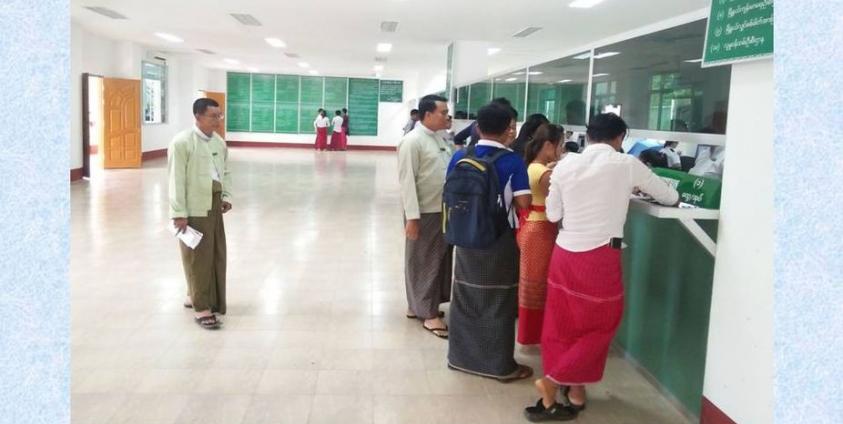During the post-coup period, the public's trust in the Military Council's administrative, judicial, and public security services witnessed a continuous decline in Mon State, as revealed in a research report by the Yarmanya Federal New Force.
On January 22nd, a report titled 'Observation of Civil Services in Mon State during the Crisis', compared the conditions of civil services in various areas under different governing entities in Mon State in the aftermath of the coup.
The research report highlights that the Military Council's administrative, judicial, and public services were exclusively operated in the interest of the authorities or the regime, rather than prioritizing the welfare of the people.
According to a Mon activist interviewed by Than Lwin Times, there is a perception that only a few areas under the control of ethnic armed organizations (EAOs) provide a sense of safety for the public, while crime has notably surged in regions governed by the Military Council in Mon State.
"In EAO-controlled territories, public security is somewhat better, but in Military Council-controlled areas, trust in the justice system has eroded, leading to decreased reliance on the courts. People avoid the courts . Criminals have grown bolder, taking advantage of the public's loss of faith in the rule of law, leading to increased incidents of robbery and violence”, he explained.
One of the major challenges in post-coup Mon State is the absence of public security, as highlighted in this research report. Furthermore, the research report notes that the authorities' home inspections and excessively strict road trip checks have contributed to a reduction in both the psychological and physical security of the public.
The Mon populace is grappling with corruption, misconduct, and bribery among civil service employees in sectors such as administration, education, health, judiciary, and security sectors.
The Military Council imposed curfews and suspended civil service operations in certain areas, due to conflicts with resistance forces, leading to additional hardships for the public.
A volunteer involved in social relief works mentioned that despite the heightened healthcare needs in the region, transporting patients by ambulance at night is hazardous due to the prevailing security situation.
"The main challenge in our region's healthcare sector is the shortage of doctors and nurses. The lack of peace in the area deters individuals from staff from serving this locality, leaving only the healthcare workers in the region striving to do the best they can ”, he told Than Lwin Times. A resident from the southern part of Ye Township expressed how the curfew has posed a significant dilemma for workers in the rubber plantations.
“The curfew makes it extremely difficult for rubber plantation workers as they are unable to extract rubber during restricted travel periods. This prevents them from collecting rubber sap during the crucial extraction season, leading to significant problems”, he said.
Due to Ye Township being a stronghold of armed resistance against the military dictatorship in Mon State, the Military Council has imposed martial law in the area.
As per the report, factors contributing to the public's diminished confidence in the Military Council's civil service include regional instability, lax rule of law, and authorities’ unfair and bullying practices.
Conversely, services managed by EAOs have emerged as a less resourceful but more effective alternative to compensate for the weakening of the Military Council's civil service mechanisms amid the Civil Disobedience Movement (CDM).
The report also highlighted that in contested regions, termed as brown areas where neither side has superior control, ongoing military tensions persist and pose a potential impact on the civil service sector.







